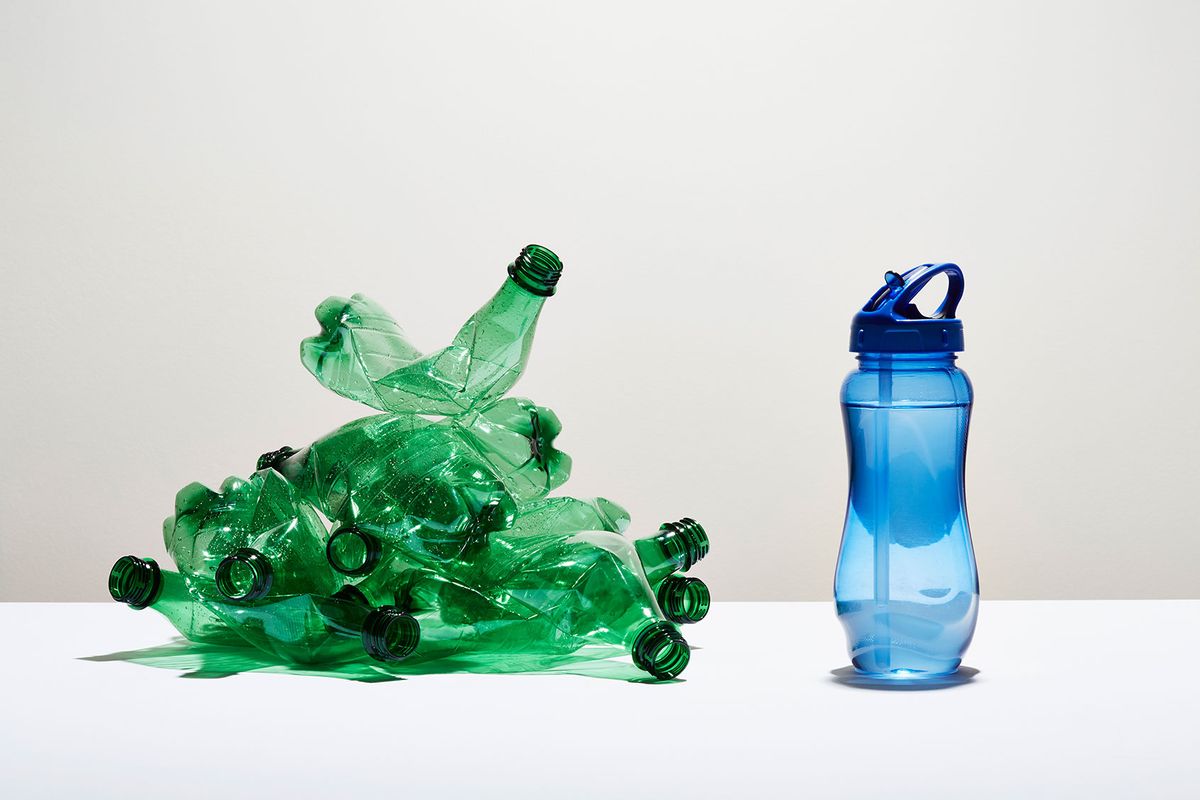You're seeing a concert and grabbing a beer in a red plastic cup, or maybe checking out a baseball game and buying a soda in a cup you'll toss before you leave the stadium. This example of single use food and beverage serveware is as common as they come. And the sight of overflowing trash cans after an event, spilling over with plastic waste that was only used for hours or even minutes is all too familiar.
But how else would it work? Drinking a beer or soda at an event is half of the fun of being there, and it's not practical to ask people to BYO reusable cups to something like a sporting event; not many people would agree to it. It's not what we're accustomed to, and it's a big shift to put squarely on consumers.
Envisioning a Reusable Future
In a recent report, "The New Reuse Economy: How reuse systems and services will revolutionize how we consume," Upstream Solutions lists a lack of vision as one of the key obstacles we need to overcome to create a "new reuse economy." Envision this: what if there were companies who made reusable cups, built out regional washing infrastructure and contracted with sports and music venues to provide reusable drink cups that attendees simply tossed in a bin before they left?
This service actually exists, provided currently by a company called r.Cup, to whom Upstream bestowed a "Reusies Award" this past September. The company has been working in Denver (and elsewhere) and recently expanded to Seattle as part of Reuse Seattle, a public-private partnership between the city, sports and entertainment venues, restaurants, businesses and more. This kind of innovation and public/private partnership is exactly the vision that Upstream lays out as necessary for a reusable future in its report.
As we explored in our recent podcast episode, "Unwrapping Food's Plastic Problem," cutting out the one trillion disposable food and beverage packaging items used in the U.S. every year will take a lot more than individual responsibility. While many people want to make good choices for the environment, they can't do that if they don't have good options. Upstream's report details the kinds of innovation we need to see to change the status quo on disposables.
Projects like r.Cup provide us with other necessities Upstream calls for, including a replicable pilot and investment in infrastructure that makes it stress-free for people and businesses to handle reusables. If a person buys a drink at a participating Seattle venue, they will be given that cup as default, and when they drop it in the collection bin, it will be circulated and reused regardless of that person's individual will or preference. This creates a solution that does not rely on individual buy-in or commitment.
Producer Responsibility for Plastic Waste
That shift away from consumer responsibility is key in this reusable future. It's a concept we explore in the food packaging podcast episode. Companies and governments must work together. In its report, Upstream celebrates big companies who have already made commitments to a portion of their supply chain converting away from single-use packaging and towards reusables. But it is worth mentioning the recent "Global Commitment" report from the Ellen Macarthur Foundation, that monitors progress on 1,000 signatories (businesses, governments and organizations) who have pledged to move forward on reducing plastic and towards a circular economy. They found that, while progress is being made, key targets are being missed and much greater strides are necessary to reduce the emissions that cause climate change, reinforcing the "urgency for businesses to accelerate action, particularly around reuse, flexible packaging, and decoupling business growth from packaging use."
Voluntary progress from businesses is a step in the right direction, but given the urgency of slowing down plastic production, creating a policy environment to speed up those changes is also a necessity. Thankfully, this is an area where we've seen recent progress: California recently joined several states in passing an extended producer responsibility (EPR) law, which makes companies responsible for disposal of their own packaging waste. EPR is only one example of how government can get involved in moving the needle on plastics. And while manufacturers are likely to fight these provisions, their growing popularity with the public signals that the industry may finally get more regulated. As we're seeing in the creative push to readapt to reusables, people are interested in moving away from plastic, they just need better options.




Shares